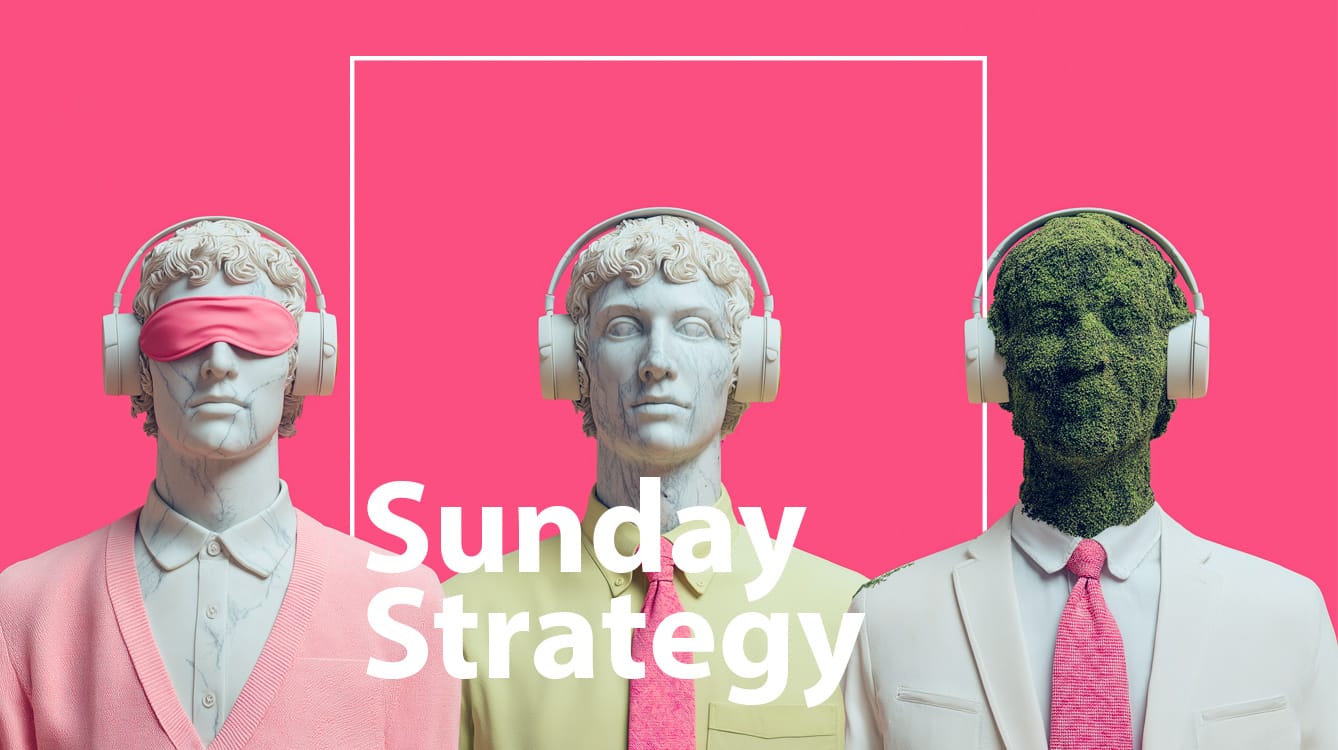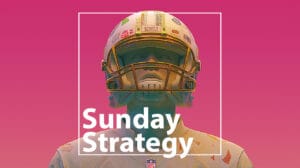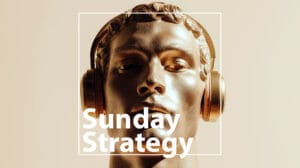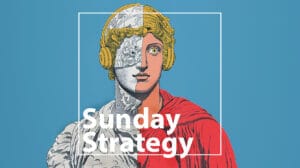In this issue of Sunday Strategy, we look at four stories to think about next week, including: the Challenge of a Third Space, the Rise of Polywork, the Myth of AI / Client Privilege and the Problem with High Value Shopping Bots.
In addition, we have ads from: Instacart, Lipton, Soundtrack, M&S and Carlsberg. If you’d prefer to listen along, the podcast version of this issue is below:
// Five Stories of the Week:
1.) It’s Easy to Say You’re a Third Space, Harder to Be One.
There aren’t as many ‘third spaces’ anymore, especially in the US. As Eater points out and travel TikTokers have shown in comparing the US to Europe, there is a defined challenge in finding a space outside of home and work to congregate in a post Covid market. Sociologist Ray Oldbenburg coined the term in 1989 and Starbucks famously latched onto it, but since its 90’s heyday – it has declined.
However, with razor sharp margins and a need for high turnover, US cities are especially limited in providing an authentic third space for today’s consumers. In the UK, even pubs, which are historically the bastion of a third space, are feeling a commercial squeeze. This tension, between allowing people to linger, a key element of third spaces, and being commercially viable has snapped in recent years. When there’s an intention to fully commercialize time spent in a venue, an organization can no longer truly claim its a ‘third space’.
In fact, original ‘third space’ brand Starbucks has recently stated its goal to reclaim the mantle, but with a plan centered on handwriting names and reusable mugs – and in the process it’s confusing a homely vibe with true ‘third spacing’.
2.) Don’t Call it a Side Hustle – It’s Polywork.
A new report from the US Department of Labour states 8.9m Americans have multiple full and/or part time jobs – the highest amount since data started being recorded in 1994. Similar to ‘overemployed’, this phenomenon has been badged with different terms, trying to move it away from the implicit shame of the traditional ‘moonlighting’ label. According to Deloitte, 45% of Gen Z and 36% of Millennials have a side / part time gig, with a combination of economic pressure and an erosion of traditional work identities driving it.
With ‘Polywork’ serving as a way to insulate against unemployment, layoffs or unforeseen economic disaster, what does work’s role in our identity look like going forward? Are we destined to be more mercenary in employment or does the right term need to be applied to reflect a new, multi-job identity? Can brands tap into this to help? HR Block recently ran a ‘make it legit’ campaign to convince gig workers to take their side hustles seriously. However, as polywork develops further, it may be less about making a binary shift in jobs and more about recognizing the portfolio approach to work.
3.) The Myth of AI / Client Privilege
What happens when everything you’ve said to an AI is kept? As more users reveal personal information and look to platforms like ChatGPT for guidance, life advice and help on drafting sensitive or important messages, what happens to these conversations afterwards is increasingly important. A recent case between news publishers and OpenAI in the US has resulted in a court order preventing the platform from deleting any chat logs and raises a question about the perception of confidentiality when we speak with AI.
If we’re going to treat AI like our therapist or confidant, should we insist on confidentiality? Is that even possible or realistic?
4.) When Shopping Bots Have to Have It
Designer Vandy the Pink’s latest collaboration with Asics, a candy themed Gel Nimbus 10.1, has shown the dangers of automated shopping. The collaboration was priced at $30k to deter reseller’s automated bots with a discount code being shared by the designer to reduce the price to $180. However, lacking the context of the code, the high price didn’t dissuade two buyer’s automated bots, who purchased the shoes at ‘full price’.
The price disparity highlights the risk of automated shopping, either by bots or agents, when it comes to limited edition or highly competitive products. How comfortable are we with something else buying on our behalf, especially when we may have left out important context for it. Buying ‘at all costs’ instructions may require additional context in the age of automated shopping and deciding when is enough is hard enough for human shoppers, let alone automated technology acting on its behalf.
// Ads You Might Have Missed:
1.) ‘Summer Like It’s 1999’ – Instacart:
Delivery firm Instacart’s latest campaign goes deep in the 1990s summer nostalgia in a way that will make millennial parents want some pizza rolls and a Capri Sun right now. Despite recent news that Millennial culture is old enough to be featured in museums and history curriculum, most parents of a certain age will still feel like the summer of 1999 isn’t that far away.
The brand taps into this with two ads soundtracked by 90s artists, including Third Eye Blind, and featuring products straight out of 90’s childhood memories. The ads feature parents bonding with their children over 90s clothes, toys and hobbies, which given how the NYT has declared ‘everything Millennial is cool again’ – feels timely. Supporting the activity, the brand has taken a page from UK retailer Tesco’s anniversary campaign, and rolled back prices to 1999 levels on items (up to the CPI difference of 47%). With brands like Neutrogena highlighting how far away the 90s actually are, Instacart shows that while time passes, memories of summer aren’t that far away.
2.) ‘The OG Iced Tea’ – Lipton Iced Tea:
It’s hard being the OG. You do the work to grow something and make it popular, just to have to defend it from newcomers when you succeed. Lipton Iced Tea is the Netherland’s original Iced Tea (claiming 87% share) and in the face of others, it partnered with a similar name sake to re-establish itself – in the form of rapper (and Law and Order SVU mainstay) Ice-T. The rapper isn’t a stranger to Ice-T puns, a whole Rick and Morty plot line was dedicated to this, but Lipton’s ads, partnered with an ‘Ice Tea Insurance’ promotion, take the pun to a new area.
Lipton’s promotion states that it will refund customers who were given another Iced Tea (in the form of ‘insurance’) and their spokesman contrasts Dutch and American culture in a way that brings the concept to life. The campaign combines elements from other counterfeit ads, such as Heinz’s color code, and 90s celebrity pun campaigns, such as NZ Export’s Vanilla Ice Timer, in a way that borrows without stealing.
3.) ‘The Fare Game’ – Carlsberg:
How do you make a global football event feel amazing and authentic? Football finals have been a jumping off point for a range of beer brand activity this year. For the Champions league, Heineken kept bars open in South Korea to watch it (by making them function purely on trust) and moved an English pub physically to the final to help superstitious fans.
However, competitor Carlsberg took a different, more ‘bottom up’ approach to their activation for the UEFA Nations final, tapping into an audience that often discusses the game, but rarely watches or attends – taxi drivers. Drivers often spend their time discussing the game, but can’t afford to take time off to watch. Carlsberg set up a surprise event for German and Portuguese taxi drivers to watch this year’s game by booking them and paying them to come to a viewing party.
As the activation supported their non-alcoholic 0.0 product, it was the perfect situation to not only be a brand champion, but a relevant product. Similar to previous Heineken work (with less beleaguered male fan vibes) and potentially inspired by a story of Bill Murray driving a cab so the cabbie could practice his saxophone, Carlsberg smartly forges a new perspective on football, working class connection and non-alc beverages.
4.) ‘Summer Like You Mean It’ – M&S:
Venerable British retailer M&S has always been an interesting case study of two brands. M&S Food and its well known variations on ‘Its not x, its M&S’ are a cultural touchpoint in the UK. M&S Fashion and Retail has always been more aloof, with memorable, but varied campaigns in search of a long term direction. In recent years, they’ve begun to hone in on an image and style that has become their own.
Their latest Summer campaign, ‘Summer Like You Mean It’ puts a lot of this on show. Balancing fashion cues and style, with more relatable elements (families with kids, popsicles) and a focus on the ‘small things’ that bring joy. Even soundtracked by Blink 182’s ‘All the Small Things’, the ad brings to life a style that aims to be aspirational and relatable to what is assumed to be a core millennial audience. This split strategy often delivers neither, but the brand ties everything together (down to hotel balconies that look stylish and budget friendly) in a way that lands its strategy and progresses for the longer term.
5.) ‘Music Gets Your Business Moving’ – Soundtrack:
Little things make a big impact when it comes to real life commercial experience and audio is an integral, but sometimes overlooked, part of it. Between the complexities of use and licensing, and the focus on other elements of the experience, music can be taken for granted.
Business streaming music service Soundtrack tries to raise the business profile of music in their latest ad, featuring a dancer working his way through several business environments without musical accompaniment. The squeak of his heels and dissonance of his moves, similar to TikToks of people singing with headphones on, gives music’s role in creating an in-store vibe a stage to sing from. While the complexities of licensing or use nuances go untouched, it effectively creates B2B demand in a way that looks to drive customers to site for trial.
// Sunday Snippets
// Marketing & Advertising //
// Courvoisier’s ‘Fathers Day’ ad celebrates all types of father figures [Ad]
// Not only is Shaggy’s Boombastic 30 years old, it was recently used to sell FIAT Pandas [Music]
// “How to Train Your Dragon’ and Burger King make so much sense I’m amazed there isn’t more like this [Ads]
// Nearly half of Holdco agency employees want out according to a recent Adweek survey [Agencies]
// Ryan Reynolds goes full Doogie Howser to promote (the Neil Patrick Harris voiced) Deadpool VR video game [Ads]
// US restaurant chain Hooters closes dozens more restaurants during restructuring [Food]
// Apple wins ‘Creative Marketer of the Year’ in advance of the Cannes Advertising Festival [Brands]
// Business streaming music service Soundtrack shows how music enhances environments with their latest ad [Ads]
// Venmo uses two ‘White Lotus’ alumni in their latest ad to show you can ‘Venmo Everything’ [Ads]
// SEEK Jobs helps Tarzan and the Tooth Fairy find new work in their latest campaign [Ads]
// Icy Hot releases the ‘Shaq Pack’, a limited edition talking pack with Shaquille O’Neil’s head [Product]
// Just in time for my Glastonbury prep, Burberry goes full British Festival in its latest campaign [Ads]
// KFC unveils the ‘Finger Lickin Fork’ [Product]
// McDonald’s brings back fan favorite snack wraps in the US [Food]
// Technology & Media //
// Uber explores stable coins as a way to power cross currency payments [Crypto]
// With its developer conference looming, is it time for Apple to show its cards on AI? [AI]
// Later breaks down the Instagram reels trends of June 2025 [Social Media]
// How air conditioning changed the course of human life [Technology]
// AI platform ServiceNow has launched an AI university [AI]
// A new research paper pulls apart the ‘Illusion of Thinking’ within LLMs and LRMs [AI]
// HBR makes the case to optimise your brands for LLMs [AI]
// Nintendo’s Switch 2 ‘Welcome Tour’ orientation strangely costs $10 and requires a 4k TV and accessories to truly finish [Gaming]
// TikTok bans #skinnytok hashtag [Social Media]
// The IRS makes direct file US tax software open source [Finance]
// Life & Culture //
// The Talking Heads just released a new music video for their 45 year old song ‘Psycho Killer’ featuring Saoirse Ronan and honestly, just in time.
// What will be the sneaker of the summer? [Fashion]
// American health agendas hit the insurmountable obstacle of pizza in schools [Food]
// Why do mocktails cost as much as alcoholic beverages? [Food]
// Until Next Sunday
As always, let me know what you think by email (dubose@newclassic.agency), website or on LinkedIn.
You can also listen to an audio summary and discussion of each week’s newsletter on Spotify. We’re also on TikTok!





